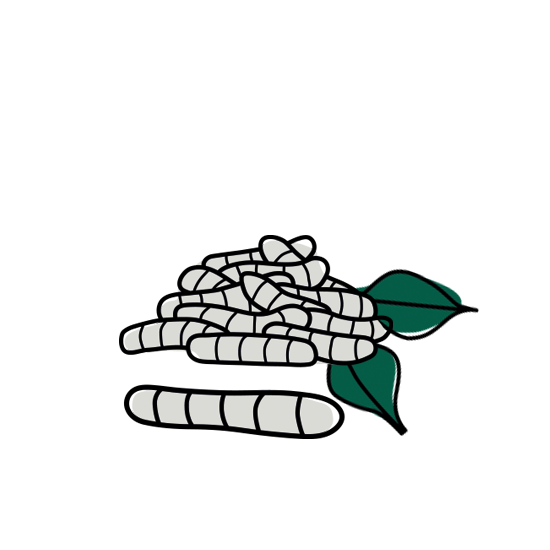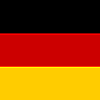Insect food as a alternative source of protein for your pet
Food intolerances in dogs and cats are a common problem that is growing in frequency. Often the cause is animal protein – in other words, your pet is reacting to the meat contained in its food.
InsectDog
Hypoallergenic
Our hypoallergenic, cereal-free recipe made using insects, potatoes, and peas is perfect for adult dogs with allergies, and climate heroes.
from 4.99€ per kg
InsectDog
Sensitive
This easily digestible and gluten-free recipe containing insect protein and rice is ideal for adult pooches with sensitivities, and climate heroes.
from 3.99€ per kg
We have the solution for these challenges! With our InsectDog Hypoallergen and InsectDog Sensitive we are helping sensitive dogs and dogs with food intolerances. And, thanks to our FairCat Safe with insect protein, cats can also look forward to an easily digestible meal. At the same time, we want to offer you and your pets food that helps protect the environment by using insects. We are aware that many of us are initially somewhat sceptical or even disgusted at the thought of insects. Why is that?

Eating insects? Isn't that taboo?
For those of us living in the West, insects are regarded as "pests". Relatively few people realise that helpful insects greatly outnumber the harmful varieties. Bees supply us with delicious honey and wax, they pollinate our plants, and many insects have a role to play as organic pest control. But insects as a source of nutrition for humans, or as food for our loyal, four-legged friends? Most people initially feel rather revolted at the concept. What is it that prompts this sense of disgust in the first place? The feeling of disgust is an innate emotion. Our sense of disgust is influenced above all by our cultural background and the society we live in. Things that are regarded as "disgusting" in Western countries may be considered perfectly normal foods in other parts of the world. According to information from the UN Food and Agriculture Organisation, insects form part of the traditional diet for two billion people in the world. It is estimated that over 1,900 different species of insects are used as food by people. Lots of insect species are regarded as genuine delicacies.
Promoting alternative sources of protein for the future
In Europe, more and more people are exploring this source of protein as part of human nutrition. One reason is the growing awareness of the environmental issues linked to conventional livestock farming. Another is concern about a potential global food shortage, which is driving the search for alternative protein sources like insects.
There are also many good reasons to consider insects as a source of nutrition for our pets.
Insects offer a more environmentally friendly option: traditional meat production places a heavy burden on nature, while insect-based pet food can help reduce that impact. Let’s take a closer look.

Insect farming means fewer greenhouse gases
A large proportion of global greenhouse gas emissions can be traced back to the production of food made from animals and the fodder supplied to them. The production of 1 kilogram of beef protein causes up to 175 kilograms of greenhouse gases. The protection of 1 kilogram of insect protein results in just 14 kilograms. Insect farming is significantly more environmentally friendly than poultry or pig farming.

Soil pollution is far lower with insect farming

Insects require less water
Access to water will become more difficult in future. The German charity Welthungerhilfe estimates that by 2025 around three billion people will be suffering from a shortage of water. Meat production is making a significant contribution to this problem. The 'water footprint' of 1 kilogram of beef is approximately 15,000 litres of water, while the equivalent for 1 kilogram of insects is just 4,000 litres. Insect farming requires far less water than cattle because insects are much more resistant to water shortages. Insects drink very little in the first place and do not lose much water via their skin and respiratory system.

Insect farming takes up much less space
The production of meat and other animal foodstuffs requires a large proportion of the world's usable agricultural land. To produce 1 kilogram of beef protein, you need ten times the amount of land as to produce 1 kg insect protein.

Insects are far more frugal in terms of food than conventional livestock
By 2030, we will need to feed over nine billion people in addition to billions of animals, which means food shortages are an important topic. Insects are cold-blooded animals and, compared to conventional livestock, they are significantly more efficient in terms of food use. On average, insects can convert 2 kilograms of food into 1 kilogram of insect mass. Cattle, on the other hand, require 8 kilograms of fodder to produce 1 kilogram of body mass. Insects are extremely frugal and can also subsist on very high-fibre foods that humans cannot utilise efficiently.
Benefits of insect food for dogs and cats
Insects protect our environment and offer good nutrition for our pets. Not only are they a source of high-quality protein, they also provide valuable fatty acids and minerals. With a biological value of around 85%, they are very easy to digest and are rich in copper, iron, B vitamins, manganese, phosphorus, selenium and zinc. Insect farming is done under strict hygiene conditions and does not require the use of antibiotics.
Dog and cat food with insect protein is just as good as food made with conventional meat. Our pets need essential amino acids, which they do not produce themselves but instead can only obtain via their food. Insects can be an excellent quality source of these substances. Where the amino acids come from is irrelevant to the pet's digestive system. The crucial thing is that they are available in sufficient quantities.
Insect food for dogs and cats is just like traditional food in terms of shape, colour, consistency, smell and flavour and is just as easily digested. Pets show excellent levels of acceptance for all our food varieties. And don't worry: you won't find any whole insects, feelers or insect shells in our InsectDog or FairCat. The insects are processed, dried and ground to a powder before they pupate.
Use of insects as a solution for allergic dogs
Insects form the perfect basis for hypoallergenic food because they represent a rarely used protein source in dog food.
In a clinical study conducted by the Ludwig Maximilian University in Munich, it was established that the grain-free recipe in our InsectDog Hypoallergen represents an ideal solution for dogs with intolerances. Dogs suffering from atopic dermatitis as a result of a diagnosed food allergy were given our InsectDog Hypoallergen for 14 days. 80% of the dogs showed improvement with regard to their skin lesions, more than half of them finally saw an end to their itching, and 40% even showed improved fur quality after two weeks. InsectDog Hypoallergen was also a complete success in terms of acceptance and how well it was tolerated. See what Prof. Ralf Müller from LMU says about our InsectDog product:

LMU's verdict
Prof. Ralf S. Müller:
"As a complete feed, for many animals [InsectDog Hypoallergen] represents a potential alternative to traditional, commercially-available dietetic feeds and hydrolysed diets."
Suitable for sensitive dogs and cats: insect protein
Our InsectDog Hypoallergen uses a grain-free recipe based on potatoes and peas and can be a solution for dogs with intolerances. But it's not only pets with verified allergies that find insects can be a real blessing. Any pets with food sensitivities are catered for beautifully with food that incorporates insect protein. Our InsectDog Sensitive with rice and insect protein can help sooth your dog's digestive system thanks to the gentle processing methods used on the ingredients. Also featuring a gluten-free formula is our FairCat Safe with rice and insect protein, which will delight the pickiest of cats. It is good for their stomachs and also reduces their CO2 paw print.

What insects do we use?
We generally use black soldier fly larvae. Our insect protein is procured from small farms in Europe, which we work with closely. This enables us to guarantee excellent quality in accordance with food standards and short transportation distances. At the same time, we are promoting the development of interesting alternatives to conventional meat for human nutrition in Europe.
How are the insects kept?
The insect farming is done as a complete cycle. The insect larvae are fed with substances left over from the local food industry or which have no other use. For example, this includes trimmings from tinned fruit, which are hygienically in perfect condition. This product would previously have been declared as "waste", whereas now it can be used and transformed into fertile soil. Natural reproduction results in the animals multiplying.
Thanks to the protected environment, the larvae are reared without the use of drugs or any contact with pesticides and in strict, hygienic conditions. Their ideal environment is cosy, warm and cramped. They take just a few days to grow and are processed shortly before pupation. With the help of cold water, they are prompted to hibernate and thus are dazed. Next, they are killed in a swift procedure using heat or cold and are processed together. The animals do not experience extended suffering. The batch of insects is processed to remove any moisture and oils, so the ultimate result is high-quality insect protein powder. The fertile ground in which the insect larvae were reared can be used as valuable manure out on the fields. This process results in almost no production waste and an optimal use of all resources.
Further information about our insect farming process can be found here.
All the benefits of insects in dog and cat food at a glance:
Insects have lots of nutritional benefits for our pets and they also help to reduce their CO2 paw print.
- Insects are a high-quality ingredient in dog and cat food
- First-rate protein, which is easily digestible
- Valuable fatty acids promote healthy skin and a glossy coat
- Rich in copper, iron, B vitamins, manganese, phosphorus, selenium and zinc
- Perfectly suited for sensitive pets or dogs with food intolerances
- Insect farming is done entirely without the use of antibiotics
- More environmentally friendly than conventional meat products
- Fewer greenhouse gases
- Less water consumption
- Minimal space requirements
- Little soil pollution
- Low food requirements






































